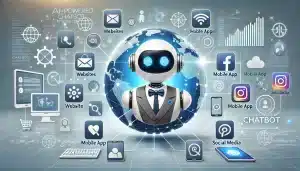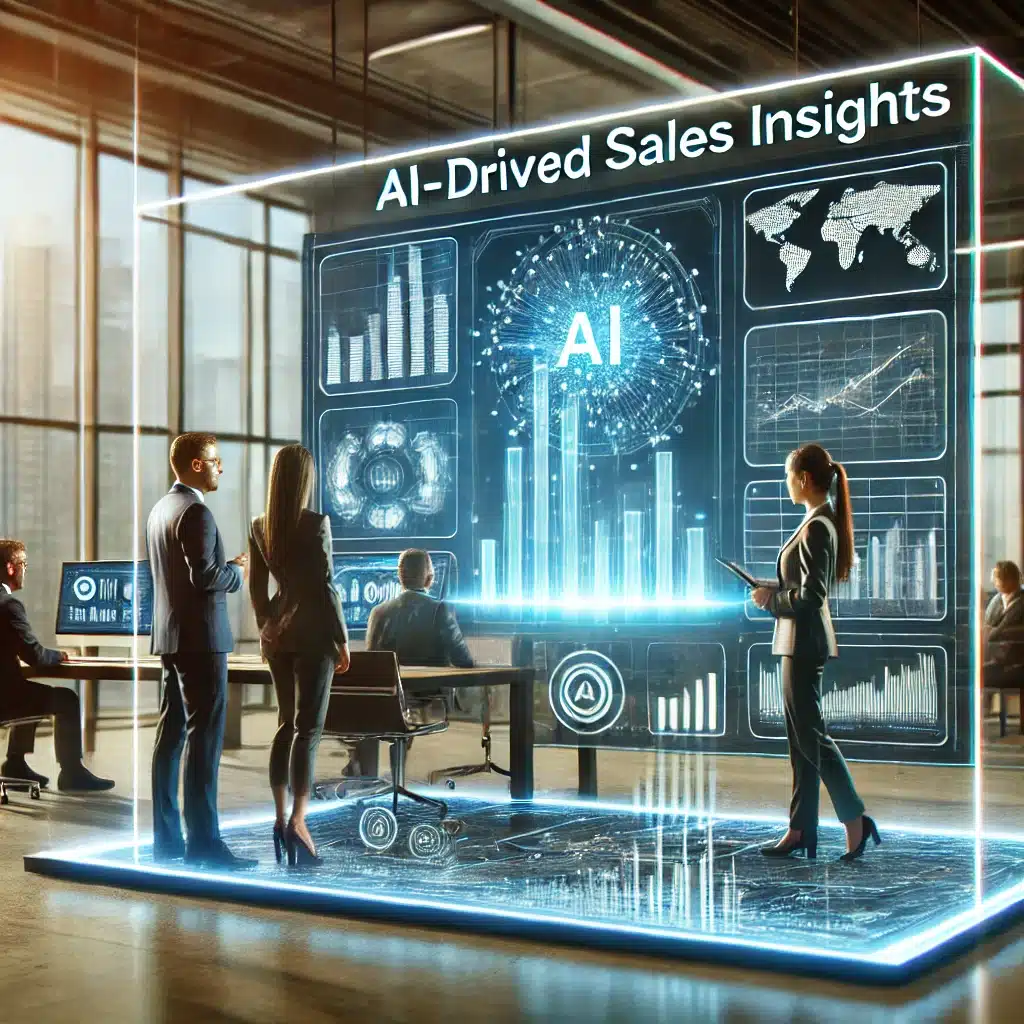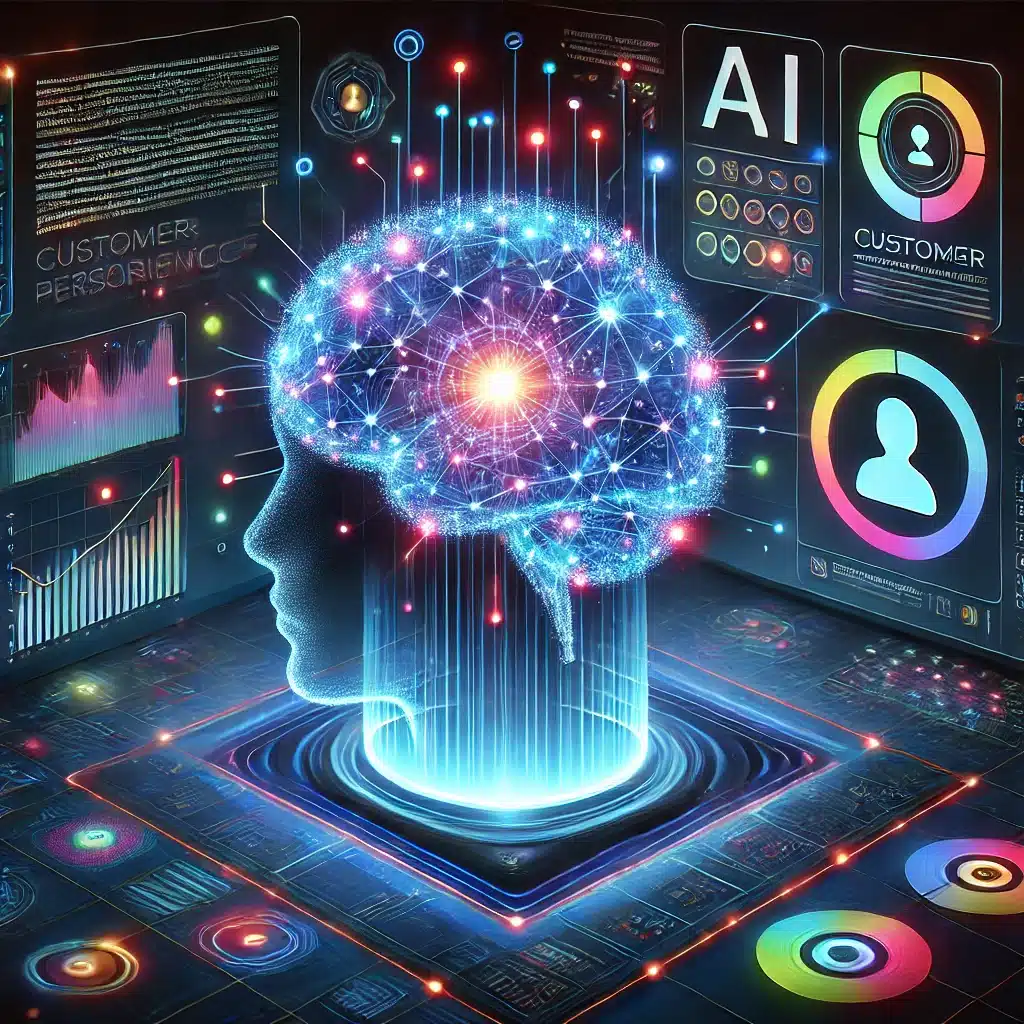In today’s interconnected and customer-focused world, businesses must meet their audience wherever they are—whether on social media, websites, messaging apps, or other digital platforms. Customers expect consistent, seamless interactions across these channels, and failing to deliver can harm customer satisfaction and brand reputation. Managing multichannel support is a daunting task for human teams alone, but AI-powered chatbots have emerged as a transformative solution. By integrating these intelligent tools across multiple platforms, businesses can ensure a unified, responsive, and scalable customer support system.
This article explores how AI-powered chatbots are revolutionizing multichannel support, the challenges of implementation, and strategies for optimizing customer engagement across platforms.
The Need for Multichannel Support
In the digital age, customers use a variety of platforms to interact with businesses. From initiating a purchase inquiry on Instagram to seeking customer support through a website chat, the journey is rarely confined to one channel. This omnichannel behavior creates a critical need for businesses to provide seamless and consistent support.
However, managing these interactions across diverse platforms can be challenging for human agents. Multiple communication channels often lead to:
- Inconsistencies in service quality.
- Delays in response times.
- Fragmented customer experiences due to disjointed data handling.
AI-powered chatbots alleviate these challenges by operating seamlessly across platforms. They reduce the workload on human agents, provide instant responses, and maintain continuity in customer interactions.
How AI Chatbots Enhance Multichannel Support
AI chatbots are more than automated responders; they are intelligent systems designed to deliver consistent, personalized, and real-time support across platforms.
Real-Time Context Retention
AI chatbots leverage technologies like Natural Language Processing (NLP) and machine learning to understand and respond accurately to customer inquiries. Contextual retention enables customers to start a conversation on one platform and continue it on another without losing the thread.
Example: A customer might inquire about a product on a company’s website and later return via WhatsApp to finalize their purchase. The chatbot, integrated across platforms, retrieves the previous conversation and resumes seamlessly.
Integration with Customer Databases
AI chatbots are connected to centralized customer databases and CRM systems. This integration allows them to:
- Access customer history and preferences.
- Personalize interactions based on past behavior.
- Provide tailored recommendations or solutions in real time.
Omnichannel Capabilities
Modern AI chatbots can function on a wide range of platforms, including:
- Websites: Offering live chat support.
- Messaging Apps: Engaging customers on WhatsApp, Facebook Messenger, and more.
- Social media: Addressing comments, direct messages, and mentions.
- Mobile Apps: Assisting users with in-app queries.
This omnichannel capability ensures businesses are accessible to customers on their preferred platforms.
Benefits of Integrating AI Chatbots Across Platforms
The integration of AI chatbots into multichannel strategies delivers several compelling advantages:
1. Consistency Across Touchpoints
AI chatbots maintain a unified tone, message, and service standard across all channels. This consistency enhances brand credibility and ensures customers receive the same quality of support, regardless of the platform.
2. Scalability
Unlike human agents, chatbots can handle thousands of interactions simultaneously. This scalability is invaluable during peak periods, such as sales events, when inquiry volumes surge.
3. Data-Driven Personalization
By accessing centralized customer data, AI chatbots craft personalized responses tailored to individual needs and preferences. This level of personalization builds stronger customer relationships and boosts satisfaction.
4. 24/7 Availability
AI-powered chatbots operate around the clock, ensuring that customers can access support at any time. For global businesses, this feature is particularly crucial for accommodating different time zones.
5. Cost Efficiency
Automating routine inquiries reduces the workload on human agents, allowing businesses to allocate resources more strategically. This results in significant cost savings without compromising service quality.

Challenges in Multichannel Integration
Despite the advantages, integrating AI chatbots across platforms poses challenges. Ensuring seamless data flow between platforms, maintaining up-to-date knowledge bases, and managing the complexity of different channel-specific user interfaces require careful planning and ongoing management. Additionally, while chatbots handle routine queries effectively, they must be designed to escalate complex issues to human agents smoothly.
1. Seamless Data Flow
Integrating data from various platforms into a single, coherent system requires sophisticated APIs and data management strategies. Any disconnect in this flow can disrupt the customer experience.
2. Knowledge Base Updates
Maintaining an up-to-date knowledge base across all channels is essential for accurate chatbot responses. Outdated or incomplete information can lead to customer dissatisfaction.
3. Channel-Specific Interfaces
Each platform has unique user interfaces and interaction styles. Chatbots must be customized to match these nuances while retaining consistent functionality.
4. Smooth Escalation to Human Agents
While chatbots handle routine inquiries effectively, complex issues often require human intervention. Ensuring seamless escalation, along with transferring relevant context to human agents, is crucial for customer satisfaction.
5. Privacy and Security Compliance
With chatbots handling sensitive customer data, ensuring compliance with regulations such as GDPR or CCPA is non-negotiable. Businesses must implement robust security measures to safeguard customer information.
Best Practices for Implementing AI Chatbots in Multichannel Support
To maximize the benefits of AI chatbots, businesses should follow these best practices:
1. Centralized Data Management
Integrate all customer interaction data into a unified CRM system to enable chatbots to deliver consistent and informed responses.
2. Regular Training and Updates
Continuously train AI models with new data and update the knowledge base to ensure accuracy and relevance.
3. Human Oversight
Complement AI-driven support with human agents for complex or sensitive issues, ensuring a balanced customer experience.
4. Platform Optimization
Tailor chatbot interactions to suit the unique characteristics of each platform, whether it’s a website, app, or social media channel.
5. Transparent Communication
Clearly inform customers when they are interacting with a chatbot and provide options for escalation to human agents.
Future Trends: The Evolution of AI in Multichannel Support
As AI technology advances, the capabilities of multichannel chatbots will continue to expand. Emerging trends include:
- Voice Integration: Chatbots equipped with voice recognition and response capabilities for enhanced accessibility.
- Predictive Insights: AI systems that anticipate customer needs based on historical data and real-time interactions.
- Sentiment Analysis: Detecting customer emotions to adjust responses and provide empathetic support.
- Hyper-Personalization: Leveraging advanced analytics to deliver even more tailored and context-aware interactions.
Conclusion
AI-powered chatbots are redefining customer support by enabling businesses to provide seamless, consistent, and scalable service across multiple platforms. By integrating these intelligent tools into a multichannel strategy, companies can enhance customer satisfaction, improve operational efficiency, and stay competitive in an increasingly digital marketplace.
As Artificial Intelligence technology continues to evolve, the capabilities of multichannel chatbots will only grow, offering even more sophisticated ways to meet customer needs. In today’s fast-paced world, adopting AI for multichannel support is not just a smart move—it’s a necessary step toward future-ready customer engagement.
FAQs
1. What are AI-powered chatbots?
AI-powered chatbots are intelligent software applications that use technologies like natural language processing (NLP) and machine learning to interact with users in real-time. They can understand, process, and respond to customer inquiries across multiple platforms, providing consistent and personalized support.
2. How do AI chatbots work in multichannel support?
AI chatbots operate across various customer touchpoints, such as websites, social media platforms, and messaging apps. By integrating with centralized data systems and using advanced AI algorithms, they ensure seamless transitions and consistent interactions. For example, a chatbot can retain context from a website chat and continue the conversation on a mobile app without requiring the customer to repeat information.
3. What are the benefits of using AI chatbots across multiple platforms?
AI chatbots offer several advantages:
- Consistency: Provide uniform service quality across all channels.
- Scalability: Handle high volumes of inquiries simultaneously.
- Personalization: Deliver tailored responses using centralized customer data.
- Availability: Offer 24/7 support to customers worldwide.
- Cost Efficiency: Automate routine tasks, freeing up human agents for complex queries.
4. How do chatbots ensure a seamless customer experience?
AI chatbots maintain a unified conversation flow by integrating with customer relationship management (CRM) systems. They preserve context across platforms, so customers don’t have to repeat their concerns. Additionally, they use predictive analytics to anticipate customer needs, providing proactive support and solutions.
5. Can AI chatbots fully replace human agents in customer support?
AI chatbots excel at handling routine queries and providing instant support, but they cannot replace human empathy and complex problem-solving skills. The ideal approach is a hybrid model, where chatbots manage straightforward inquiries and escalate complex or sensitive issues to human agents.
6. Are AI chatbots cost-effective for small businesses?
Yes, AI chatbots are highly cost-effective for small businesses. They automate repetitive tasks, reduce the need for extensive customer support teams, and provide round-the-clock assistance. Additionally, many AI chatbot platforms offer scalable pricing, making them accessible for businesses of all sizes.
7. How do AI chatbots ensure data privacy and security?
AI chatbots use encryption, secure authentication methods, and comply with regulations like GDPR or CCPA to protect customer data. Businesses must implement robust data management practices and maintain transparency about how customer information is collected and used.



